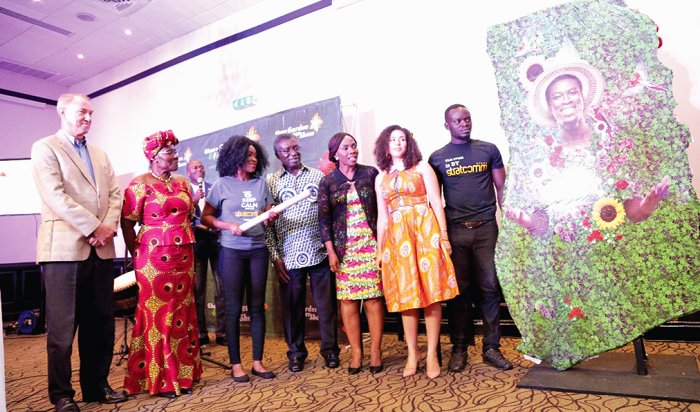
Protect environment for future generations - Prof. Frimpong Boateng
The Minister of Environment, Science, Technology, and Innovation (MESTI), Professor Kwabena Frimpong-Boateng, has advised the public to act responsibly to protect the environment for future generations.
He said the survival of human and animal life depended on the quality of the environment for which reason it was important to take pragmatic steps to conserve it.
“Indiscriminate human activities, especially illegal mining, has destroyed our environment and put human and aquatic lives in danger. It is degrading our lands, polluting our water bodies, and depriving us of our agricultural lands.
“We need collective efforts to act responsibly to be able to protect our environment from such destructions in our own interest and that of generations unborn,” he said.
Launch
The minister was speaking at the launch of the fifth Ghana Gardens and Flowers Show by Strategic Communications Africa Limited (Stratcomm Africa) in Accra last week.
The show dubbed “Flower Ghana, Grow Ghana” will be held from August 31, 2017, to September 4, this year at the Efua Sutherland Children’s Park in Accra.
Present at the launch were the Ambassador of Royal Netherlands to Ghana, Mr Ron Strikker, as well as officials from the public and private sector, exhibitors, and other members of the public.
Job creation
Prof. Frimpong-Boateng lauded Stratcomm Africa and its private sector partners for contributing significantly to environmental conservation through floriculture and horticulture initiatives.
He said floriculture and horticulture offer employment opportunities and also protect the environment from degradation that we have experienced from the illegal mining activities.
Collaboration
The Chief Executive Officer (CEO) of Stratcomm Africa, Ms Esther A.N. Cobbah, said the theme for the 2017 Ghana Garden and Flower Show focuses on promoting the cultivation of flowers because “we believe it will help grow Ghana environmentally and also in health and in wealth.”
She explained that the initiative sought to contribute to Ghana’s realisation of the United Nations (UN) sustainable development goals (SDGs), and called for public-private partnership (PPP) as well as the involvement of religious bodies and other stakeholders to rid the country of filth and preserve the environment.
